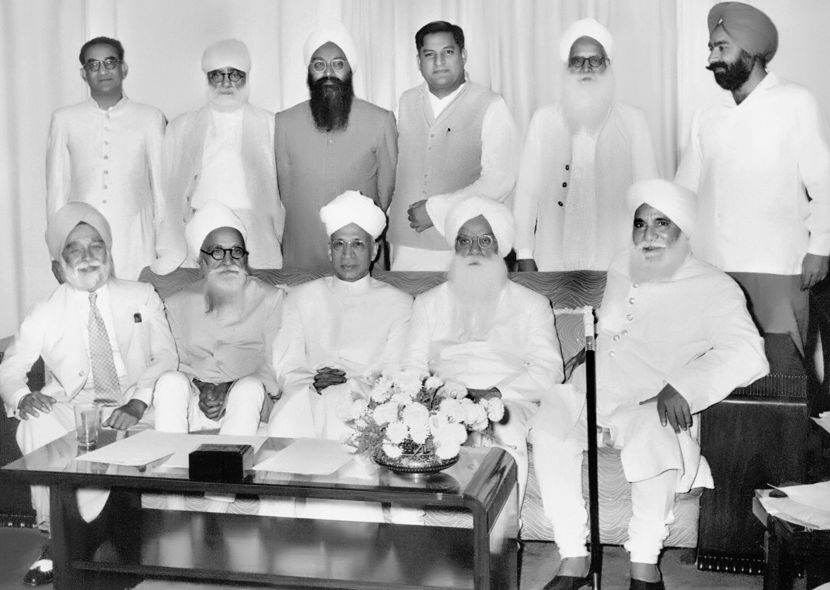Mmmm….Newspapers! Well, the wealth of knowledge is inked in it. So much so that turning the pages of the book doesn’t do much justice to the diverse field that literature is. Books have been written for centuries carrying the imprint of celebratory figures now departed, but newspapers knot a bunch of different fragrances.
Only a handful of articles I can shortlist among the many that throw light on the dark corners of my knowledge.
December 5th marked Bhai Veer Singh’s birthday. I had the privilege of reading him from The Tribune. To be honest, I heard of the prominent man of letters for the first time.
Conferred with the honorific ‘Bhai’, he is considered a saint in the Sikh faith. Through his writings, he shaped the Sikh identity. He wrote in Punjabi at a time when the language was not received as a language of speech amongst the learned. Dr Mulk Raj Anand was so inspired by him that he gained command over the Punjabi language to understand the subtlety of his works.
His first work ‘Sundari’(1898) transcends boundaries, with concerns universal. His last work ‘ Mere Sayian Jeo’ ( 1953) won him Sahitya Akademi in 1955, making it the first such honour in the Punjabi language.
Bhai Vir Singh’s reach is limited even in the 21st century. His work is confined to religious and geographical boundaries. Called the ‘Sixth River of Punjab’ by Lt.Col JS Guleria, the Poet of the Sikhs has his body of works translated into English by Prof Harbans Singh and Prof GS Talib. He was awarded Padma Bhushan in 1956 and the Government of India released a stamp to commemorate his birth centenary in 1972.
HERE'S AN EXCERPT:
Tracing the literary journey of Bhai Vir Singh, whose 150th birth anniversary falls on December 5
While there is no denying the fact that Bhai Vir Singh was, and remains, the most influential Sikh scholar of the 20th century, a careful study of his writings shows that his concerns transcended boundaries of time and space. It is therefore important that Bhai Vir Singh is taken out of the ‘temple of adoration’ as ‘Poet of the Sikhs’ and projected as ‘Poet of Cosmos’ with concerns beyond Sikh identity.

Bhai Vir Singh was born at a time when there was a growing religio-political awakening and movements like the Singh Sabha and Arya Samaj were greatly swaying the young minds. He was both the product of the Singh Sabha movement as also its guiding spirit. It is a strange coincidence that Vir Singh was born a year before the launch of the Singh Sabha movement and became one of its chief spokesmen. What distinguishes Bhai Vir Singh from his contemporaries is the fact that rather than entering into any political controversy or the Arya Samaj-Singh Sabha polemics, he decided to work for the spiritual rejuvenation of his community. This he did by providing inspiration from the historical past. Through the efforts of Bhai Vir Singh and other traditional intellectuals, the Singh Sabha soon became a force to reckon with. It not only created a new self-awareness and confidence in the Sikhs but also made the members of the community realise their backwardness in various fields. Bhai Vir Singh thought that the only way to take his community out of the prevalent mess was through the propagation of the high ideals and institutions of the Sikh faith, and this he did through his novels, poems and other literary works.

Being a product of Christian Mission School, Amritsar, Vir Singh was well aware of the modus operandi of the Christian missionaries. He realised how the setting up of the first printing press in Ludhiana in 1835 had redoubled their missionary efforts. It was therefore in the logic of things that in Bhai Vir Singh’s plan of countering missionary propaganda, a printing press was set up in Amritsar in 1892, which became a powerful vehicle of propaganda of the Singh Sabha movement. Two years later, the Khalsa Tract Society was also established in Amritsar with the objective of reaching a larger Sikh audience. In 1899, Bhai Vir Singh founded a Punjabi weekly, the Khalsa Samachar. Most of his works were first published either in the form of tracts or serialised in the Khalsa Samachar and later published in book form. Careful planning and execution of Bhai Vir Singh’s literary agenda contributed in creating the needed awakening among the Sikhs.
